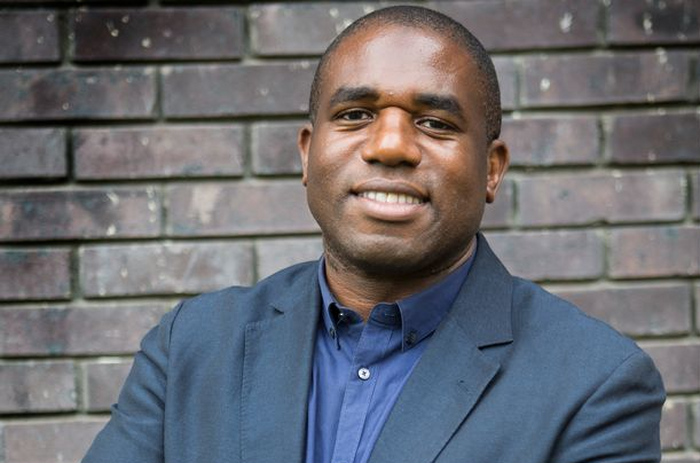Cambridge is making progress in admissions – schools aren’t
Matt Jefford argues that we should commend Cambridge for the steps forward it has made in admissions, and focus more on schools, which are letting potential applicants down

How far can a university founded on selecting academically-gifted students be expected to reflect a society where disparities of wealth and achievement remain inextricably linked? This is the question which critics of the Cambridge University admissions process – most recently Labour MP David Lammy – often fail to consider. So much media attention laments the lack of student diversity and the alienation of Cambridge to minority students. We rarely hear the positive side of the story: that we are making progress. Too many good students are deterred from application in schools lacking any familiarity with the process. Faced with this obstacle, the Cambridge selection system still continues to reduce gender and ethnic disparities.
Every year, Cambridge University spends £5 million on outreach schemes, while £8 million is distributed to 2,600 students on bursaries. From the first female students at Girton in 1869, 2016 statistics show that rough gender parity (52:48 pro-male) has been achieved. The educational divide between state and privately-educated students is narrowing such that Oxford, St Andrews, Durham and Bristol are now among those with lower proportions of state admissions than Cambridge. Of course, a 62.5% to 37.5% split is still lopsided, but appreciably more than the 58.8% of state acceptances in 2011, or 53% in 1999. This differs by college from 46% at St John’s in 2016 to 74% at King’s – clearly not all colleges deserve equal condemnation.
“David Lammy’s condemnation of Oxbridge exclusivity will only deter bright students that are wavering”
The University targets the access divide through the Area Links and Connect to Cambridge schemes, assigning institutions across the country with a Cambridge college liaison. Selwyn, my college, has a responsibility to build ties with West Yorkshire, Berkshire and Scottish schools, and recently hosted a Year 11 BME open day.
Fundamentally, diversification requires more secondary level teachers to encourage students to fulfil their academic potential by applying here, as well as progress in the success of disadvantaged groups at this point. Schools should be more concerned that in 2016, only 282 Black British students chose to apply. It is no fault of Cambridge if schools fail to produce students who achieve the A*AA or more required at A-Level. From the use of contextual flagging and extenuating circumstances forms, colleges can still highlight where performance may not reflect aptitude. The pace of change can be criticised – it is indefensible that each year from 2010 to 2015 a quarter (on average) of colleges failed to make a single offer to a black student. But the University should not take such a significant share of the blame as our poor secondary education system.
David Lammy’s condemnation of Oxbridge exclusivity will only deter bright students that are wavering. His comments reinforce a media representation of Cambridge as innately malicious. As long as the Mail or Telegraph feel obliged to situate the most selective universities in an elitist paradigm, the genuine receptivity of university staff to concerns will go overlooked. It’s indicative that in one week, Cambridge can both be castigated for its disproportionately small ethnic minority intake, and yet the same sources can persecute BME student Lola Olufemi for “demanding” the English Faculty shifts away from the Anglocentrism in its syllabus. Of course, the sensationalism sells, but we rarely hear celebrations of the world-class teaching, research, and calibre of students of all backgrounds which our university produces.
Cambridge students should assert their pride at having the opportunity to study in such an enriching environment. While a class divide still exists, the alienating, financially exclusive aspects of student life are exaggerated. ‘Secret societies’ like the Pitt Club remain the preserve of a tiny minority. Efforts at inclusivity demystify unfamiliar societies and traditions – I’d note the new Cambridge Union+ initiative to widen accessibility to the best speakers, freshers’ or BME plays, or even Caius’s ‘informal formals’. There is a breadth of opportunity in drama, music, literature, student politics, sports and every other extra-curricular interest such that students from diverse circumstances can work together to achieve great things.
Present students should feel no burden of guilt for the university’s past failures of accessibility. Their energies can be turned positively to college JCRs, CUSU (for instance the ‘Breaking the Silence’ campaign targeting sexual harassment), and other structures through which to lobby University officials for the benefit of future generations. We should not submit to the ill-conceived comments of MPs sidestepping their own responsibility to promote educational attainment below university level. Cambridge has done remarkably well to maintain its necessarily demanding academic standards while diversifying its intake, as well as fostering an environment where students from all backgrounds can pursue diverse interests and thrive
 News / Cambridge academics stand out in King’s 2026 Honours List2 January 2026
News / Cambridge academics stand out in King’s 2026 Honours List2 January 2026 Interviews / You don’t need to peak at Cambridge, says Robin Harding31 December 2025
Interviews / You don’t need to peak at Cambridge, says Robin Harding31 December 2025 Comment / What happened to men at Cambridge?31 December 2025
Comment / What happened to men at Cambridge?31 December 2025 Features / “It’s a momentary expression of rage”: reforming democracy from Cambridge4 January 2026
Features / “It’s a momentary expression of rage”: reforming democracy from Cambridge4 January 2026 News / Varsity’s biggest stories of 202531 December 2025
News / Varsity’s biggest stories of 202531 December 2025










